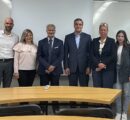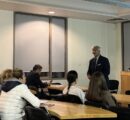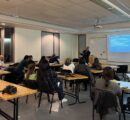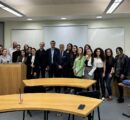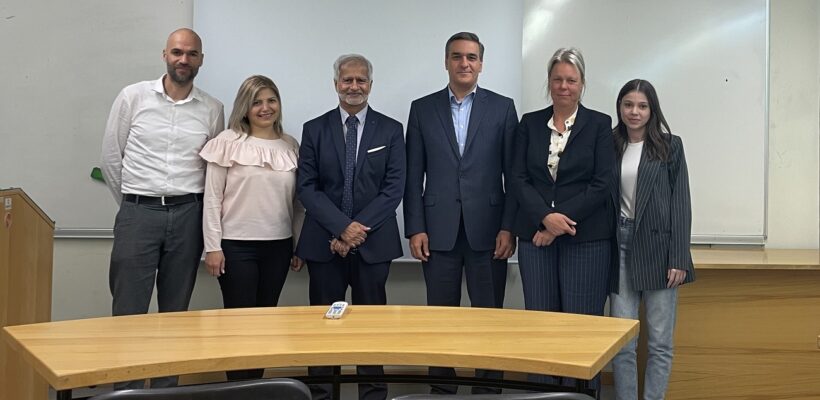
LL.M. and MAHRSJ Programs Host International Criminal Law Expert
2 min readYEREVAN, Armenia — On October 11, the American University of Armenia (AUA), within the framework of International Criminal Law course for Master of Laws (LL.M.) and Master of Arts in Human Rights and Social Justice (MAHSRJ) programs taught by Dr. Arman Tatoyan, and in collaboration with the Raoul Wallenberg Institute for Human Rights and Humanitarian Law, hosted renowned expert Dr. Lyal S. Sunga — distinguished visiting professor and lecturer of international criminal law, with extensive teaching and research experience in diverse countries, including Sweden, Italy, Kenya, and Ethiopia.
The discussion revolved around the remarkable evolution of international criminal law over the past decade. Dr. Sunga delved into the contemporary global issues and respective international responses, expounding on the multilayered approaches for their appropriate analysis.
During the lecture, Dr. Sunga offered invaluable insights drawn from his extensive experience working within the United Nations and relevant reflections from his mission in Rwanda in 1994.
The lecture provided a comprehensive historical backdrop pertaining to the creation of the International Criminal Court (ICC) with a nuanced understanding of its origins and purpose. Notably, Dr. Sunga covered several recent conflicts, such as Nagorno-Karabakh, as well as the Israeli-Palestinian and the Russo-Ukrainian conflicts. His expert analysis of these complex and sensitive matters shed light on the intricate dynamics at play, with a particular focus on how international criminal law intersects with and responds to these challenges.
Founded in 1991, the American University of Armenia (AUA) is a private, independent university located in Yerevan, Armenia, affiliated with the University of California, and accredited by the WASC Senior College and University Commission in the United States. AUA provides local and international students with Western-style education through top-quality undergraduate and graduate degree and certificate programs, promotes research and innovation, encourages civic engagement and community service, and fosters democratic values.

